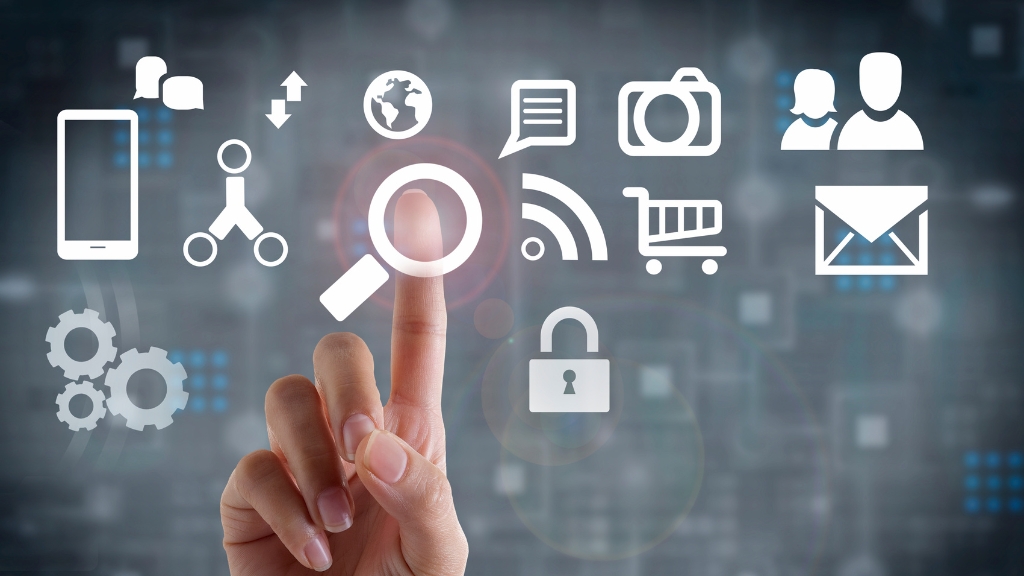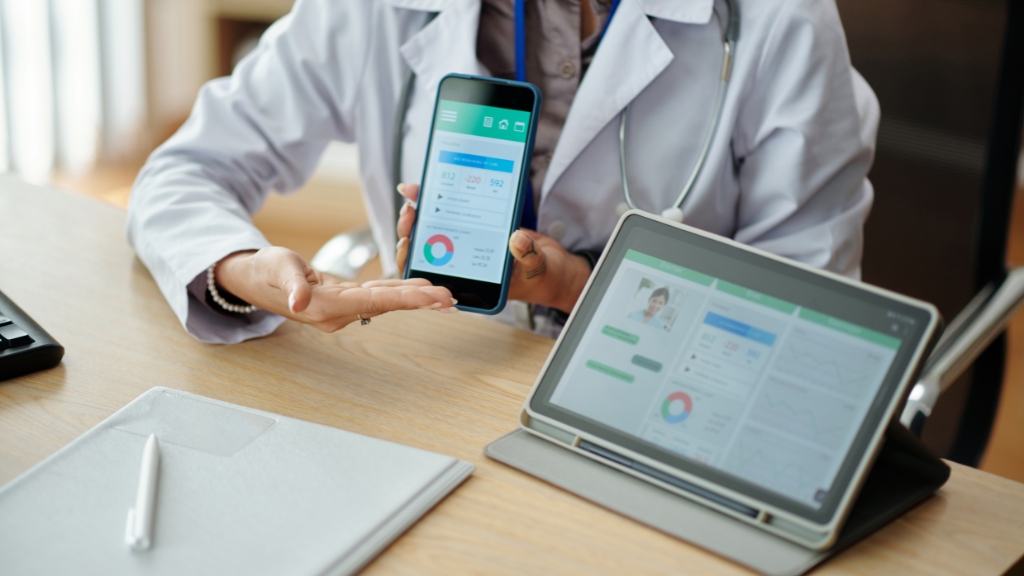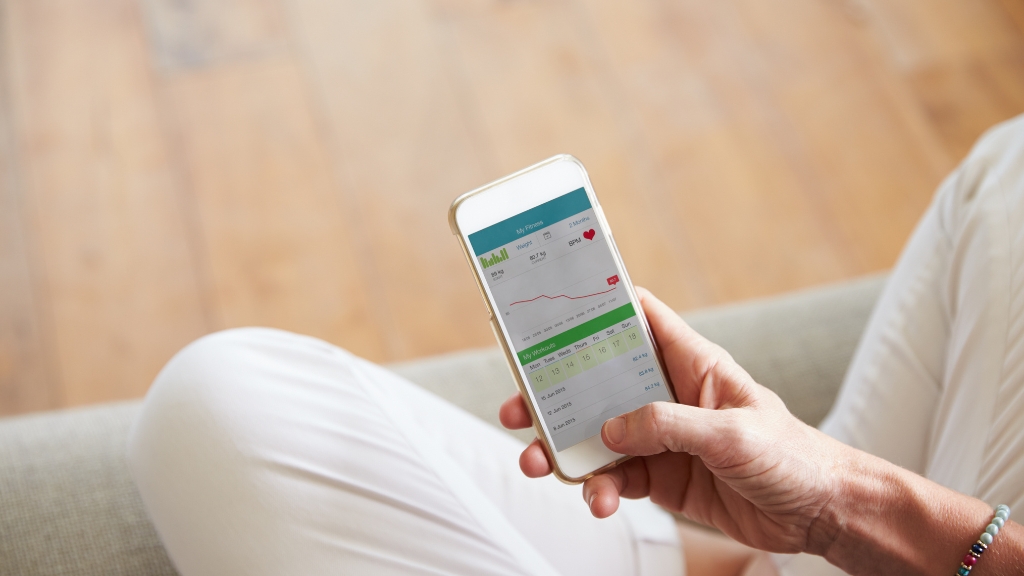
Healthcare Apps: The Future of Digital Health at Your Fingertips
The healthcare industry is experiencing a monumental shift, and mobile health applications (healthcare apps) are at the heart of this transformation. These apps are changing how patients manage their health and interact with healthcare providers, offering increased convenience, real-time data, and personalized care. As the digital health landscape evolves, healthcare apps are becoming indispensable tools for improving patient outcomes, enhancing healthcare efficiency, and making healthcare more accessible.
In this article, we’ll explore the role of healthcare apps in modern health management, the benefits they provide, and how innovations like Pulse IQ’s solutions are shaping the future of healthcare. Let’s dive into the evolution of healthcare apps and their significance in the healthcare ecosystem.
What Are Healthcare Apps?
Healthcare apps are mobile applications designed to help individuals manage their health and wellness. These apps provide various functions, including tracking health metrics, scheduling appointments, managing medications, accessing medical records, and facilitating virtual consultations with healthcare providers.
Some common types of healthcare apps include:
- Telemedicine Apps: These apps allow patients to consult with doctors remotely via video, chat, or voice calls, eliminating the need for in-person visits.
- Chronic Disease Management Apps: These apps help individuals with chronic conditions, such as diabetes or heart disease, track their symptoms and medication adherence.
- Fitness and Wellness Apps: These apps monitor physical activity, calories burned, and steps walked, and they offer fitness plans.
- Mental Health Apps: These apps provide resources for managing mental wellness, such as mood tracking, guided meditations, or access to online therapy.
- Electronic Health Record (EHR) Apps: These apps allow patients and healthcare providers to access and update medical records, improving communication and treatment coordination.
The Benefits of Healthcare Apps
- Convenience and Accessibility
Healthcare apps offer unmatched convenience by providing 24/7 access to healthcare services. With just a few taps, patients can consult with doctors, access their medical records, and even order prescriptions. This accessibility is essential for individuals who may have difficulty visiting healthcare facilities in person due to mobility issues or geographic barriers. During the COVID-19 pandemic, telemedicine apps provided a crucial way for patients to receive care without the risk of exposure to the virus.
- Cost Efficiency
Healthcare apps contribute to reducing healthcare costs by making services more affordable. Traditional in-person consultations often involve overhead costs, such as office space and administrative staff. Telemedicine, for instance, eliminates many of these costs, making healthcare services more affordable. Moreover, by using chronic disease management apps or fitness apps to monitor health in real-time, patients can prevent more severe conditions that could lead to costly emergency room visits and hospitalizations.
- Real-Time Monitoring and Personalized Care
One of the most significant advantages of healthcare apps is the ability to monitor health data in real time. Apps that sync with wearable devices, like fitness trackers or smartwatches, allow patients and healthcare providers to track vital statistics, such as heart rate, blood pressure, and blood sugar levels. This constant monitoring enables early intervention if health metrics are out of range.
For example, Pulse IQ’s healthcare app integrates innovative EHR systems with real-time analytics to track a patient’s health data. This real-time approach allows healthcare providers to proactively adjust care plans, improving patient outcomes and reducing the likelihood of emergencies.
.
- Improved Patient Engagement
Healthcare apps encourage patients to become more engaged in their health. These apps offer features like medication reminders, health tips, and educational content to help patients understand their conditions better. Apps that allow patients to interact with healthcare providers directly—whether through secure messaging or video consultations—also foster a stronger relationship between patients and doctors.
- Enhanced Collaboration Among Healthcare Providers
Healthcare apps that offer EHR functionalities improve communication between different healthcare providers. With a unified view of a patient’s medical history, doctors, nurses, and specialists can collaborate more effectively, reducing the risk of errors, redundant tests, and delayed treatments.
The Role of AI and Analytics in Healthcare Apps
Artificial Intelligence (AI) and data analytics are increasingly integrated into healthcare apps to enhance their capabilities. AI algorithms can analyze vast amounts of health data to provide personalized health insights and predictions.
For instance, Pulse IQ’s AI-powered analytics provide real-time, actionable insights from patient data. These tools can analyze trends and detect anomalies in a patient’s health data, offering predictive analytics that help healthcare providers intervene before issues become critical
. AI can also interpret medical imaging, diagnose conditions faster, and help create treatment plans tailored to patients’ needs.
Furthermore, AI can help with drug discovery, identify health risks, and even predict disease outbreaks, making healthcare apps a powerful tool for preventative care.
Telemedicine and Virtual Healthcare
Telemedicine is an essential feature of many healthcare apps. It allows patients to consult with healthcare providers remotely, bypassing in-person visits. This is particularly beneficial for individuals living in rural areas or facing mobility challenges. By providing access to healthcare without geographic constraints, telemedicine apps improve healthcare access, reducing disparities in care.
Telemedicine apps can be used for a variety of purposes, including:
- Routine consultations for minor ailments.
- Mental health services, including therapy and counseling.
- Chronic disease management is where patients can follow up with their doctor without leaving home.
- Specialist consultations allow patients to connect with doctors in specialized fields, regardless of location.
Telemedicine’s popularity grew exponentially during the COVID-19 pandemic and remains a crucial aspect of modern healthcare delivery.
Data Privacy and Security in Healthcare Apps
Since healthcare apps handle sensitive personal health data, privacy and security are paramount. Developers must comply with data protection regulations like the Health Insurance Portability and Accountability Act (HIPAA) in the US and similar laws globally to protect patient data.
To protect personal information, healthcare app developers implement various security measures, including end-to-end encryption, secure data storage, and multi-factor authentication. Users must also understand how their data is used and choose apps with transparent data-sharing policies.
The Future of Healthcare Apps
As technology advances, the future of healthcare apps looks even brighter. Innovations in AI, machine learning, 5G connectivity, and blockchain are expected to enhance their functionality and security.
Shortly, apps may be able to provide even more personalized and accurate health insights by incorporating genetic data, environmental factors, and other variables. Wearables will continue to improve, providing more precise health data that can be integrated into apps for continuous health monitoring.
The ongoing development of virtual and augmented reality (VR and AR) may also bring new capabilities to healthcare apps, including virtual consultations with holographic doctors, interactive therapy sessions, and immersive health education.
Conclusion
Healthcare apps are reshaping the healthcare industry by making healthcare more accessible, personalized, and efficient. They provide patients the tools to manage their health on their terms while enabling healthcare providers to offer better, data-driven care. Integrating AI and analytics further elevates the potential of healthcare apps, offering predictive insights and real-time monitoring that can improve patient outcomes. Pulse IQ’s cutting-edge solutions demonstrate the power of technology in enhancing patient care, making healthcare apps an integral part of the digital health future.
.
As healthcare evolves, mobile health applications will become essential in providing high-quality, accessible, and affordable healthcare for all. By embracing these technological innovations, patients and healthcare providers can benefit from a more streamlined, practical, personalized healthcare experience.
FAQs
1. What are the benefits of healthcare apps?
Healthcare apps offer convenience, cost efficiency, real-time monitoring, personalized care, and improved patient engagement. They make healthcare more accessible and help track health metrics for better-informed decisions.
2. Are healthcare apps secure?
Healthcare apps are designed with robust security measures to protect patient data, including end-to-end encryption and secure storage. Choosing apps that comply with data privacy regulations like HIPAA is crucial.
3. Can healthcare apps replace traditional in-person visits?
While healthcare apps are a valuable supplement to traditional visits, they only partially replace in-person care. They are ideal for routine consultations, chronic disease management, and remote monitoring, but some situations still require in-person evaluations.
4. How do AI and analytics improve healthcare apps?
AI and analytics help healthcare apps by analyzing health data to provide personalized insights, predict potential health risks, and assist healthcare providers in making data-driven decisions.
5. How can Pulse IQ enhance my healthcare experience?
Pulse IQ’s AI-powered healthcare solutions offer real-time insights and intelligent EHR integration, making it easier to manage health, track progress, and make informed decisions about your care.
Leave a Reply
- AI in Diagnostics: Revolutionizing Early Detection and Accuracy
- How AI and Advanced Analytics Are Transforming Healthcare Outcomes
- Investing with Confidence: The Role of ROI Calculators
- How ROI Calculators Drive Data-Driven Business Strategies
- The Ultimate Guide to ROI Calculators for Business Success
- Making Sense of ROI Calculators: A Comprehensive Guide
- June 2025 (1)
- May 2025 (1)
- October 2024 (2)
- September 2024 (31)
- August 2024 (31)
- July 2024 (27)
- June 2024 (28)
- May 2024 (30)
- April 2024 (33)
- March 2024 (23)
- February 2024 (29)
- January 2024 (3)
- December 2023 (47)
- November 2023 (36)
- October 2023 (23)
- September 2023 (2)
- June 2023 (2)
- May 2023 (13)
- April 2023 (1)




